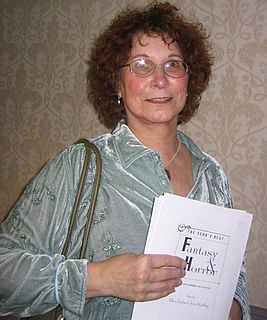A Quote by Samuel Johnson
At length weariness succeeds to labor, and the mind lies at ease in the contemplation of her own attainments without any desire of new conquests or excursions. This is the age of recollection and narrative; the opinions are settled, and the avenues of apprehension shut against any new intelligence; the days that are to follow must pass in the inculcation of precepts already collected, and assertion of tenets already received; nothing is henceforward so odious as opposition, so insolent as doubt, or so dangerous as novelty.
Quote Topics
Against
Age
Any
Apprehension
Assertion
Avenues
Collected
Contemplation
Dangerous
Days
Desire
Doubt
Ease
Excursions
Follow
Her
Insolent
Intelligence
Labor
Length
Lies
Mind
Must
Narrative
New
Nothing
Novelty
Odious
Opinions
Opposition
Own
Pass
Received
Recollection
Settled
Shut
Succeeds
Weariness
Without
Related Quotes
Doubt--because doubt is not a sin, it is a sign of your intelligence. You are not responsible to any nation, to any church, to any God. You are responsible only for one thing, and that is self knowledge. And the miracle is, if you can fulfill this responsibility, you will be able to fulfill many other responsibilities without any effort. The moment you come to your own being, a revolution happens in your vision. Your whole outlook about life goes through a radical change. You start feeling new responsibilities--not as some thing to be done, not as a duty to be fulfilled, but as a joy to do.
We are all, always, the desire not to die. This desire is as immeasurable and varied as life's complexity, but at bottom this is what it is: To continue to be, to be more and more, to develop and to endure. All the force we have, all our energy and clearness of mind serve to intensify themselves in one way or another. We intensify ourselves with new impressions, new sensations, new ideas. We endeavour to take what we do not have and to add it to ourselves. Humanity is the desire for novelty founded upon the fear of death. That is what it is.
What should we think of someone who never admits error, never entertains doubt but adheres unflinchingly to the same ideas all his life, regardless of new evidence? Doubt and skepticism are signs of rationality. When we are too certain of our opinions, we run the risk of ignoring any evidence that conflicts with our views. It is doubt that shows we are still thinking, still willing to reexamine hardened beliefs when confronted with new facts and new evidence.
We must bear in mind, then, that there is nothing more difficult and dangerous, or more doubtful of success, than an attempt to introduce a new order of things in any state. For the innovator has for enemies all those who derived advantages from the old order of things, whilst those who expect to be benefited by the new institutions will be but lukewarm defenders.
Certainly the highest posthumous praise that can be conferred upon any writer is the assertion that his or her writing permanently altered the literary landscape for the better, opening new textual doors and engaging new readers. That the author's oeuvre was essential and irreplaceable and transformative.
But Margaret was at an age when any apprehension, not absolutely based on a knowledge of facts, is easily banished for a time by a bright sunny day, or some happy outward circumstance. And when the brilliant fourteen fine days of October came on, her cares were all blown away as lightly as thistledown, and she thought of nothing but the glories of the forest.
For successful education there must always be a certain freshness in the knowledge dealt with. It must be either new in itself or invested with some novelty of application to the new world of new times. Knowledge does not keep any better than fish. You may be dealing with knowledge of the old species, with some old truth; but somehow it must come to the students, as it were, just drawn out of the sea and with the freshness of its immediate importance.
While we sometimes feel and have felt in days that are past and gone, to complain because we meet with oppression, persecution, and affliction, yet I wish to say to my brethren and sisters that these things are the heritage of the Saints of God. … I have never read of the people of God in any dispensation passing through life, as the sectarian world would say, on flowery beds of ease, without opposition of any kind.
She began now to comprehend that he was exactly the man who, in disposition and talents, would most suit her. His understanding and temper, though unlike her own, would have answered all her wishes. It was an union that must have been to the advantage of both: by her ease and liveliness, his mind might have been softened, his manners improved; and from his judgement, information, and knowledge of the world, she must have received benefit of greater importance.




































